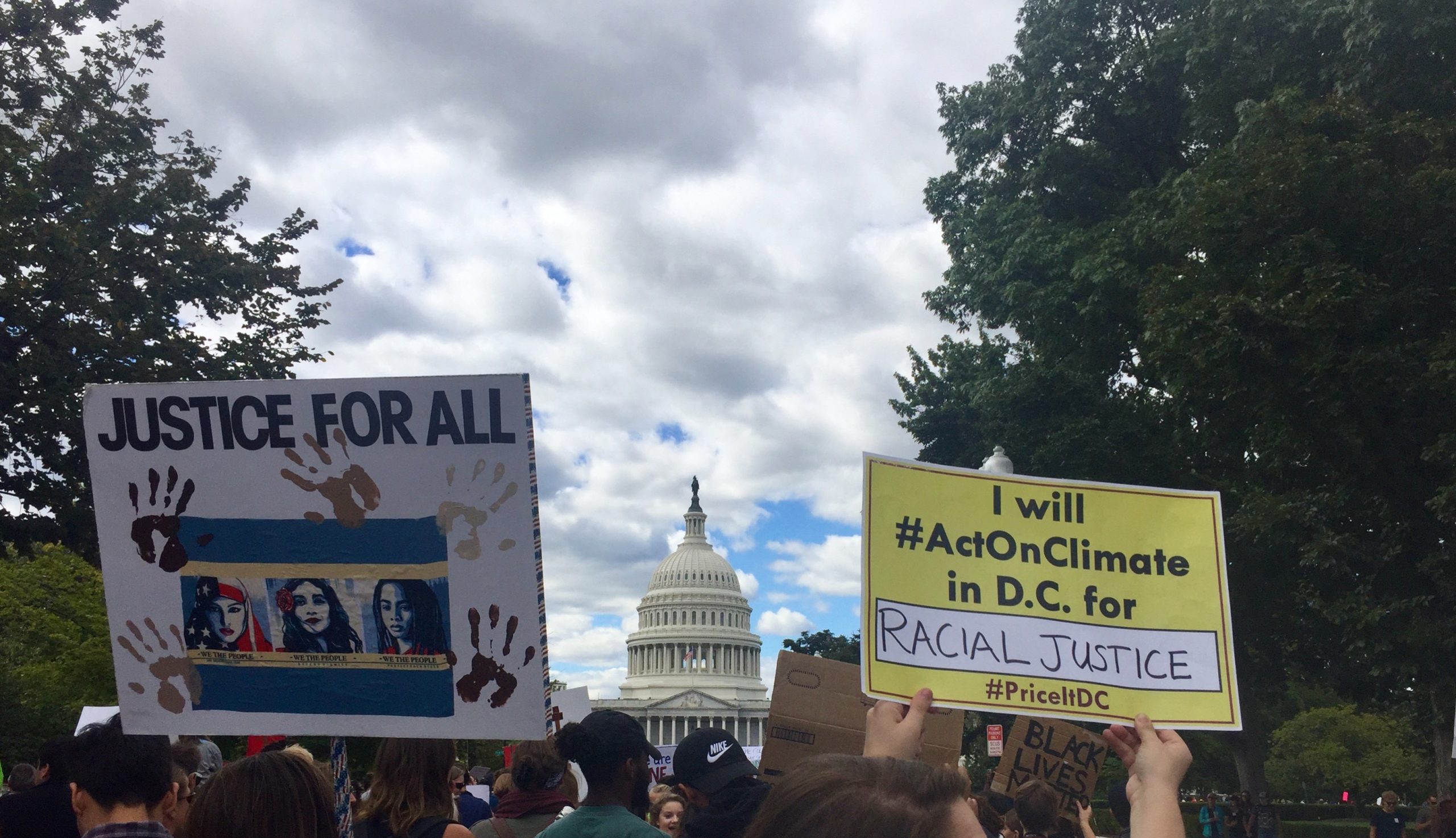
- Health is the top priority, for all people, with no exceptions. We will work to ensure the health and safety of all people. That starts with those whom our actions affect most directly — our staff and our volunteers. We will move all of our operations online until scientists and state and local governments determine it is safe to go out. We also believe that health protections must cover all people, prioritizing those who are likely to be hit first and worst by COVID-19 and the economic downturn. These include low-wage workers, health workers, independent contractors, family farmers, Black and Latinx communities, undocumented immigrants, LGBTQ+ folks, Indigenous peoples, people who are incarcerated, people who are homeless or housing insecure, people who are food insecure, and disabled/immuno-compromised folks, among others.
- Working on climate is critical. The coronavirus has reinforced that preventing a global crisis is much better than trying to fix one after it becomes too severe. The climate crisis does not pause and neither will we.
- Our economic recovery must prioritize economic and environmental resiliency. This public health crisis has presented a warning for what we might see without serious climate action. Just as with coronavirus, our changing climate is a science-based threat that calls for proactive changes to the way we live our lives. Unlike the virus, however, the changes we need to put in place to solve climate change can stimulate the economy instead of shutting it down. As the government injects massive amounts of money into recovery efforts, these investments must be made with an eye towards protecting public health and the environment and expanding cleaner, greener, more sustainable, and good-paying jobs. We will advocate for programs that create jobs and protect the climate and public health such as planting trees in the region’s urban areas, efficiency gains in buildings, electric vehicle expansion, and offshore wind development, among other health-protective and economy-stimulating measures.
- We will work to ensure a just recovery by prioritizing workers and communities. Just as the climate policies for which we advocate must incorporate justice and equity, so too must our economic recovery efforts. No one should lose their home or go bankrupt because of COVID-19 or any other global pandemic and we will lift up and amplify the work of leaders in these fields. At the same time, investments should create millions of good, family-sustaining jobs with high-road labor standards and counter systemic inequities by directing investments to those who face the most economic insecurity. In our work, this means ensuring that investments are distributed equitably across our region.
- We must protect our democratic process while protecting each other. People must not be forced to choose between exercising their rights as citizens and protecting public health. Specific life-saving and democracy-defending measures include expanding vote by mail and delaying public hearings and comment periods until it is safe for people to gather to educate others and give public comments. To prevent voter disenfranchisement, vote-by-mail efforts must include the following safeguards:
- Postage must be free or prepaid by the government;
- Ballots postmarked on or before Election Day must count;
- Signature matching laws need to be reformed to protect voters; and
- Community organizations should be permitted to help collect and deliver voted, sealed ballots.
CCAN will make these Five Principles actionable in the following way:
- Each state team will create guidance for the state’s economic recovery efforts that are grounded in these principles
- Each state team will incorporate these principles into their planning to guide their work during the crisis and the long-term economic recovery
- We will use these principles as a touchstone when making decisions about letters to join and efforts to uplift and amplify

